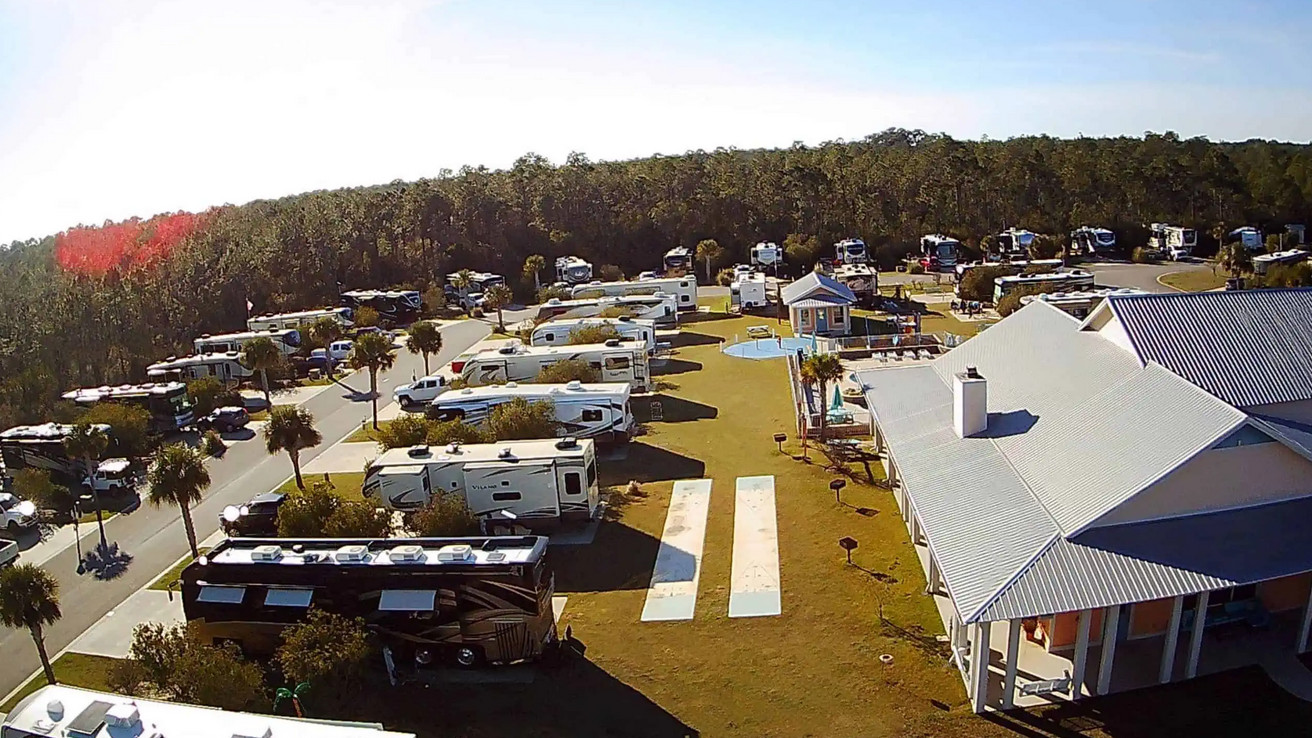In the realm of affordable housing, the terms “mobile home park” and “trailer park” are often used interchangeably, leading to confusion about their distinctions. As housing trends evolve and lifestyles change, understanding the differences between these two housing concepts becomes crucial for those seeking to make informed decisions about their living arrangements. In this comprehensive guide, we’ll delve into the nuances that set mobile home parks and trailer parks apart, shedding light on their unique characteristics.

Trailer or RV Park
Defining Mobile Home Parks
- Permanent Installations: Mobile home parks are communities designed to accommodate manufactured homes, often referred to as mobile homes. These homes are built off-site and transported to the park for permanent installation. Unlike traditional homes, mobile homes are constructed on a steel chassis with wheels, allowing for mobility, but in a mobile home park, they are typically anchored to the ground and connected to utilities.
- Regulatory Standards: Mobile home parks are subject to specific regulatory standards and building codes set by state and local authorities. These codes ensure that the homes meet safety and quality standards. Mobile homes, in general, have evolved significantly over the years, and modern units often rival traditional homes in terms of amenities and construction quality.
- Ownership of the Land: In a mobile home park, residents typically own their mobile homes but lease the land on which the homes are situated. This arrangement allows for a sense of stability and community, as residents can establish roots while enjoying the flexibility of mobile home ownership.
- Amenities and Community Facilities: Mobile home parks often come equipped with amenities and community facilities, such as common areas, recreational spaces, and sometimes even swimming pools or clubhouses. These features contribute to a sense of community and shared spaces, fostering social interactions among residents.
Defining Trailer Parks
- Historical Context: The term “trailer park” has historical roots and is often associated with the early days of mobile homes. In the mid-20th century, homes on wheels were commonly referred to as trailers, and the communities that housed them were colloquially known as trailer parks. However, the terminology has evolved, and the industry now prefers the term “mobile home park” to avoid negative connotations.
- Perception and Stereotypes: Unfortunately, the term “trailer park” has been stigmatized over the years, often conjuring images of run-down communities and socioeconomic challenges. It’s essential to recognize that this stereotype doesn’t accurately represent the diverse and evolving landscape of mobile home living today.
- Mobility of Homes: Historically, trailers were designed for mobility, and residents could relocate their homes if needed. However, as mobile homes became more permanent fixtures in communities, the term “trailer park” fell out of favor, and the focus shifted toward establishing stable, well-regulated mobile home parks.
- Ownership Models: Similar to mobile home parks, residents in trailer parks may own their homes but lease the land. However, in some cases, trailer parks may be more transient, with residents having the option to move their homes more frequently. It’s crucial to clarify the terms of ownership and mobility when considering a housing arrangement in a trailer park.
Navigating the Modern Landscape
- Industry Evolution: The manufactured housing industry has undergone significant evolution, leading to a departure from the stereotypical trailer park image. Modern mobile homes are built to high standards, offering energy efficiency, aesthetic appeal, and a range of floor plans. The industry has embraced the term “mobile home park” to reflect the positive changes and the permanence of these communities.
- Community Diversity: Mobile home parks today are diverse communities that cater to various demographics, including retirees, families, and individuals seeking affordable housing solutions. The focus is on creating well-maintained, safe, and welcoming environments that promote a sense of community and pride among residents.
- Regulatory Reforms: Recognizing the importance of regulating mobile home parks to ensure residents’ safety and well-being, many states have implemented reforms to strengthen building codes, improve infrastructure, and enhance overall living conditions. These measures contribute to a positive shift in the perception and reality of mobile home living.
- Affordability and Sustainability: Both mobile home parks and trailer parks continue to offer affordable housing options, making them attractive to individuals and families looking to achieve homeownership without the financial burden of traditional real estate. The sustainability and energy efficiency of modern mobile homes contribute to their appeal as environmentally conscious housing choices.
Conclusion
In the modern era, the terms “mobile home park” and “trailer park” represent more than just housing; they embody the evolution of affordable and flexible homeownership. While historical stereotypes may linger, it’s essential to recognize the positive transformations within the industry. Choosing between a mobile home park and a trailer park is not just about terminology; it’s about finding a community that aligns with your lifestyle, needs, and aspirations. As the housing landscape continues to evolve, the distinctions between these terms will likely become less relevant, and the focus will shift toward promoting the diverse and dynamic communities that make up the fabric of mobile home living in the 21st century.

